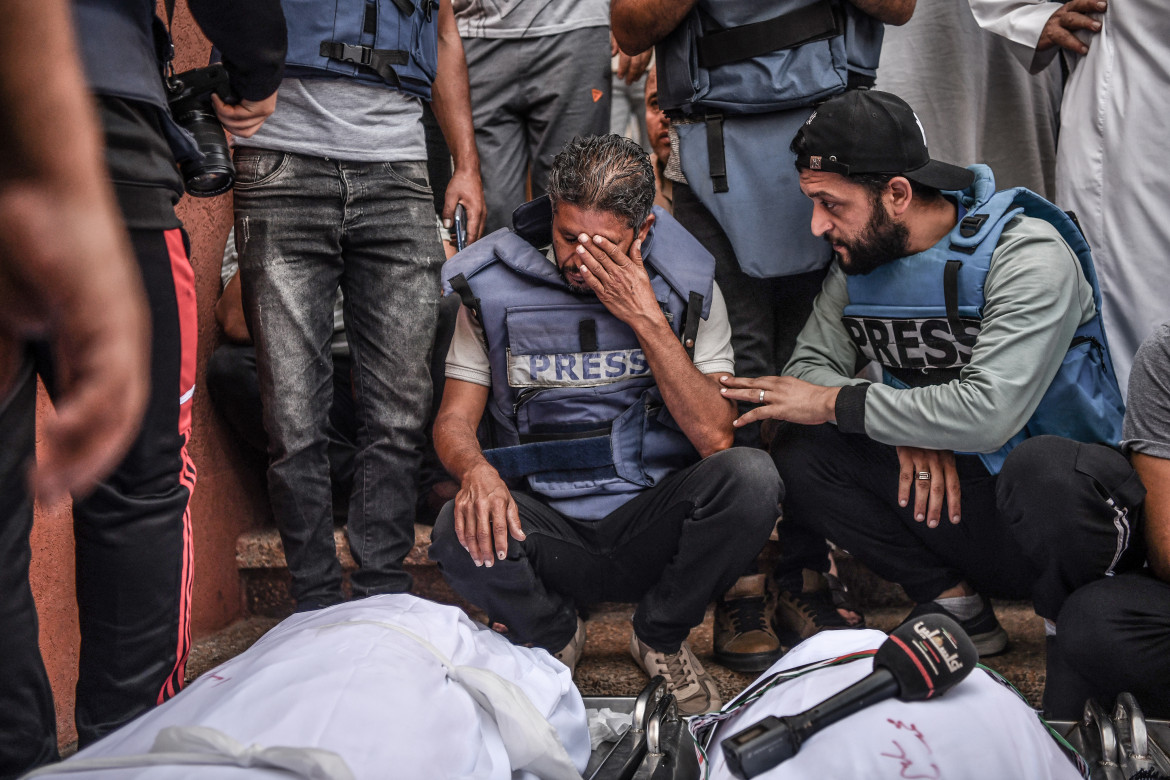Commentary
Photojournalist Abed Zagout: ‘Working as a Palestinian journalist in this conflict is suicide’
The testimony of Gazan photojournalist Abed Zagout: ‘My children and I have gone hungry. I have been displaced to different cities. I spent many days in a tent in difficult living conditions. I struggled every day to feed my children and at the same time to cover and follow current events.’

I have been working in photojournalism for 15 years. During this time, I have covered many Israeli attacks. I thought of myself as a war photographer. But this war has made me think again. It is the end of the road.
The media is tied to those who fund them; media policies are tied to the favor of the powerful. And the powerful always stress the weaknesses of the weak. There had been so much technological development in the last days of Gaza, before the war. It can be seen if one looks on social media. But the occupation has taken that away from us.
Working as a Palestinian journalist in this conflict is tantamount to suicide. All of us have been expecting to be targeted and killed at any moment, especially as we lost dozens of colleagues in a number of deliberate and repeated Israeli attacks. I survived certain death more than once. There can be no price for such risk. We lost our homes. I also lost my house, on which I had spent all the money I had, just a few months before the war. I am still making the payments. My equipment is also very expensive. No price could ever be fitting for any photo I took of this genocide.
My children and I have gone hungry. I have been displaced to different cities. I spent many days in a tent in difficult living conditions. I struggled every day to feed my children and at the same time to cover and follow current events. It was exhausting. I am still suffering from psychological problems, even here in Egypt. I become afraid at the sound of civilian planes carrying civilian passengers. The noise still terrifies me and my children. I still have bloody nightmares, and whenever I order food here and eat, I remember how difficult the times I spent hungry were. I would film hungry children while I was hungry myself.
I specialized in producing human interest stories. The core of my work was focused on the humanitarian situation during the genocide. And, on a personal level, I shared the same terrible situation with everyone I was photographing. I was photographing hunger when I was hungry, thirst when I was thirsty. The image came from the heart of an oppressed person who was experiencing the same suffering. It was a very difficult time.
My daily life was a struggle between, on one hand, the need to provide food and drink for my family and the requirements of daily life, and, on the other, the duty of reporting events. Every photo I took of a targeted child was as if I were photographing my own child.
Palestinians love life. They love the sea. They have to pay a high price to live in peace.
Palestinian photojournalist Abed Zagout now lives in Egypt, where he had to flee because of threats received during the Israeli offensive. Winner of the Impact Awards 2023 and the Red Cross Photography Award in 2008, he, his wife and his five children lived in a tent in Rafah during their last days in the Strip.
Testimony collected with the assistance of Désirée Klain.
***
After losing his camera equipment and every means of earning a living, Abed Zagout has launched a fundraiser from Egypt (https://gofund.me/e1effe6e). A number of Italian photographers have already offered their support, including Luciano Ferrara, a historic Neapolitan photojournalist who has auctioned off his works. The initiative came together at the “Imbavagliati” international civil journalism festival which has just concluded in Naples.
Originally published at https://ilmanifesto.it/a-gaza-ho-fotografato-la-fame-da-affamato-la-sete-da-assetato on 2024-05-01
